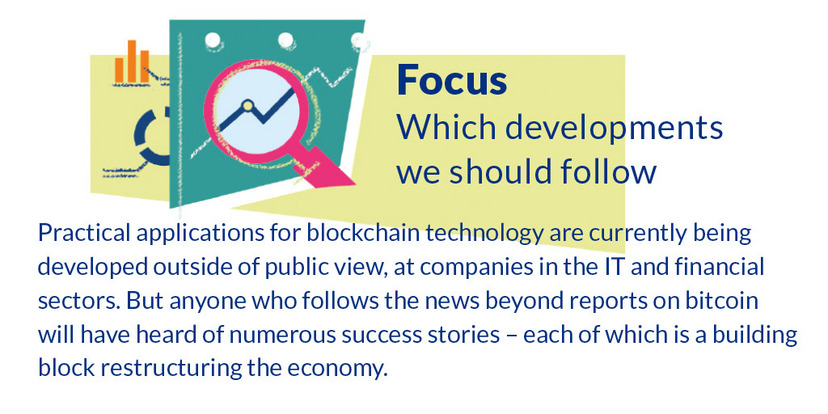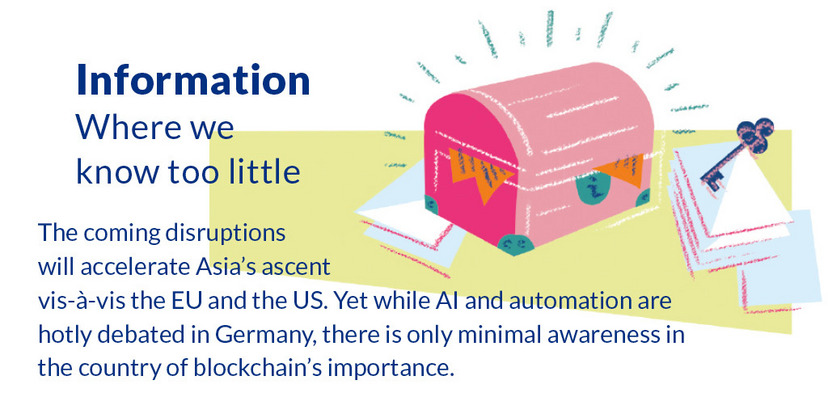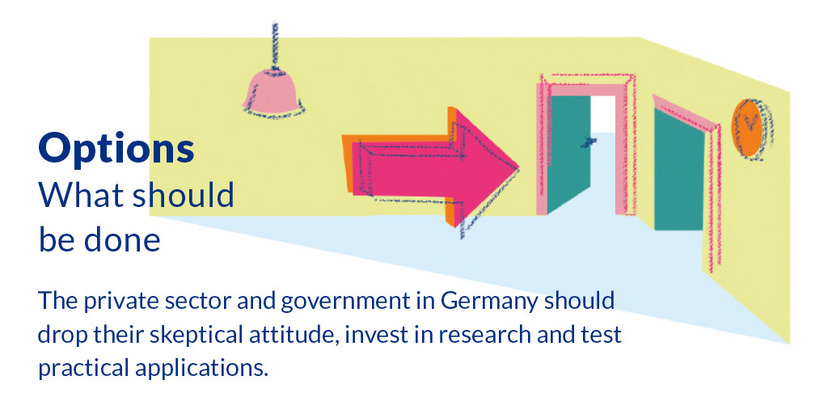China is the front-runner here. Among Communist Party leaders, cadres with a scientific-technical background are overrepresented. The country wants to actively shape the future and has hardly any reservations about transforming nature and society. In addition to major physical projects such as the Three Gorges Dam, digital mega-projects such as the introduction of social scoring are now also emerging in China. The country’s leaders have the burning desire to ensure China joins the ranks of the leading technology countries. Now China also wants to become the blockchain world champion.
President Xi Jinping explicitly praised blockchain in a speech to the Chinese Academy of Sciences in May 2018, alongside AI, quantum computers, mobile telecommunications and the Internet of Things, as belonging to the “new generation of information technology”. In China, the mere mention of a new idea by a top leader in an “important speech” is clearly an accolade. All levels of the hierarchy are now trying to outdo each other presenting results.
Government agencies in China are working flat out to set standards for blockchain use. The Ministry of Industry and Information Technology is bringing together experts from all departments to do exactly that. At the same time, China is the site of various innovative pilot projects. The city of Loudi, for example, wants to use blockchain technology to document real estate transactions and has networked the relevant authorities for this purpose. Each transaction is registered on a server and recorded in summary form in the blockchain. This enables each participating authority to verify the authenticity of the entry. In China, such projects, when successful, often serve as role models and are then expanded across the entire country.
Other public sector players are also eagerly experimenting with the new technology. Several blockchain research projects are underway at the country’s central bank. It alone holds at least 45 blockchain patents. The state-owned commercial banks are also keen to participate.
The private sector is even more active. Internet vendor Alibaba alone accounted for 10 percent of all blockchain patents worldwide in 2017. Not only looking at applications for online sales, Alibaba is assiduously researching how it might automate Internet services of all kinds.
Members of the bitcoin scene read such news with astonishment, still traumatized as they are by the restrictions imposed by Chinese authorities in 2017. Since then, the Chinese government has virtually eradicated the use of crypto-currencies in China by declaring the relevant trading venues illegal. This seems at odds with the country’s desire to promote blockchain, since bitcoin has been the technology’s flagship application so far.
Ultimately, however, the response is completely logical. The Chinese leadership feels money should be controlled by the state. The nominally communist government still does not allow their currency to be freely traded against the dollar and the euro, so they certainly cannot countenance competing forms of free-floating cash. With bitcoin, it would theoretically be possible to anonymously transfers billions from one location to another. It is therefore not a surprise that bitcoin became so popular in China in such a short time. A non-governmental alternative to storing wealth, no matter how it might have been gained, coupled with the chance to spirit funds surreptitiously across the border, not to mention the benefits of holding a speculative commodity rising in value – all of that was, in sum, irresistibly attractive to wealthy Chinese.
Thus, crypto-currencies like bitcoin are now virtually banned, while the government actively promotes the future of blockchain applications. It might be revolutionary technology, but it will unfold under state control.
Chinese thought leaders even expressly see blockchain as an opportunity to outpace the US. A segment in the “Dialogues” series shown by state broadcaster CCTV on the subject of blockchain was revealing here. The broadcast’s takeaway: “Blockchain is worth ten times more than the Internet.” Zhang Shoucheng, a physicist who has since passed away, saw blockchain as the next level of the Internet, beyond the business models implemented by Google and Facebook. While the latter centralized information, blockchain will decentralize it. Zhang was a highly respected influencer, a physics genius who enrolled at FU Berlin in 1980 at the age of 17 and taught in the US after graduating.
It remains to be seen whether the Chinese approach of control and promotion is optimal. In any event, it oscillates between extremes: Sometimes a start-up entrepreneur is threatened with prison because he has not scrapped his bitcoin app quickly enough. On the other hand, lavish grants are awarded to blockchain start-ups. The people involved are often unsure what to make of it.
The reason can be traced back to the country’s government agencies, which often administrate independently of each other, insisting on their independence. The Ministry of State Security, for example, would prefer to ban all activities on the Internet, while the Ministry of Industry and Information Technology would ideally grant inventors complete freedom. The current compromise is that all companies processing information using blockchains must provide detailed annual reports of all their activities. Creative freedom this is not.









